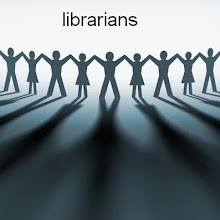"Do more with less!"
The Workload Problem
There are three (interrelated) general causes for the burgeoning workload of academic librarians: diminished resources for universities at large, including reductions of library staff ; an increasingly managerial or corporatised style of governance at the highest levels; and an explosion in the complexity and sheer quantity of the work to be done, largely due to the expansion of the role of information technology. The result for librarians is a syndrome of increasing pressure to "do more with less," a familiar mantra of policy-makers. In practical terms this means, for instance, serving proportionately more time on the reference desk, covering collections responsibilities for a greater number of
subjects, or cataloguing more books per day.
Excerpt from: Canadian Association of University Teachers Association
There are three (interrelated) general causes for the burgeoning workload of academic librarians: diminished resources for universities at large, including reductions of library staff ; an increasingly managerial or corporatised style of governance at the highest levels; and an explosion in the complexity and sheer quantity of the work to be done, largely due to the expansion of the role of information technology. The result for librarians is a syndrome of increasing pressure to "do more with less," a familiar mantra of policy-makers. In practical terms this means, for instance, serving proportionately more time on the reference desk, covering collections responsibilities for a greater number of
subjects, or cataloguing more books per day.
Excerpt from: Canadian Association of University Teachers Association
